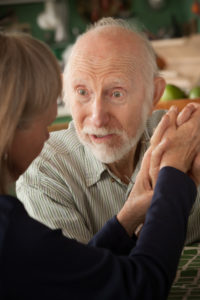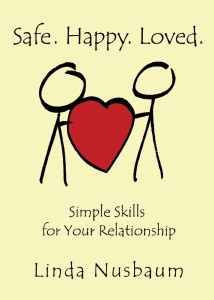All of us create our habits when we are little. I know it would make more sense if we could make them when we are fully grown, but that is not how humans work.
We all have to figure out life as a single digit little person. Let’s say you had a perfect family and your mother and father and siblings were always kind and caring. If this happened to you then wonderful. You are probably a fully formed human and your habits might be fantastic.
As Children, We Acquire Our Parents’ Habits

But most humans didn’t grow up with perfect anything. If you had parents or one parent who was not able to show feelings then this is what you learned, to stuff what you were feeling and think with your head.
If you have a parent or parents who yelled when upset, then this is what you learned by just seeing how the adults acted. The reason I am writing about this is to help all of us understand that our childhood habits are not meant to connect. They are usually developed so we can survive.
And since we did survive and are likely in a relationship we might bump up against our habits as we try to connect with the one we love. And this is common too. So, here is an invitation to look at what we do when we get our feelings hurt so we can build new habits.
Our Childhood Habits Rear Their Heads After the Honeymoon Phase

Often times when we are with our special person, we get into our heads that they love and understand us so much they will never hurt us. They will always be as great as they are in the beginning of the relationship.
I wish this were so, but it is not. As soon as the “honeymoon” stage is over then we start to realize that we are really two different people. Our own habits, likes and dislikes, and the way we react to hurt feelings begin to surface.
So those childhood habits of stuffing feelings or cutting off from our partner or yelling at them and not talking about what happened will all come out. We will see what habits all of us brought with us from childhood.
Criticism and Complaints Don’t Help Partners Improve

Normally people are not in the psychology world and can say, “Wow, you have a problem talking about your feelings,” but we can surely see what needs improvement with our partner. And guess what, they can probably see what our difficulties are as well.
Pointing out our partner’s habits doesn’t help them improve, but that is what most couples do. They notice what their partner does, but rarely take stock in how they come across.
Work On How You Express Your Hurt Feelings

I want to urge you to look at your habits of expressing your hurt feelings. This is everything when you are with another person because you will time after time misunderstand and miscommunicate life.
I know, coming into this world and screaming at the one who hurt me wasn’t going to work in my relationship. Good thing I learned I had feelings that needed to be expressed gently. It took a while, but it was the best habit I put down and learned. I know you can do it too. Believe me, it is well worth it.
Learn How to Communicate More Gently and Effectively
Read a Book About Relationships
Learn how to communicate more softly, empathetically, and effectively by reading Linda’s book, Safe. Happy. Loved. Simple Skills for Your Relationship. It might just help both of you communicate more kindly and effectively about your differences and help you grow towards deeper love and acceptance. Give it a read.
Get Couples Counseling
Come in for couples counseling. Couples counseling can help you and your loved one get the most out of your relationship. It'll equip you with coping strategies and tools for communication that can help you argue less and love more.


